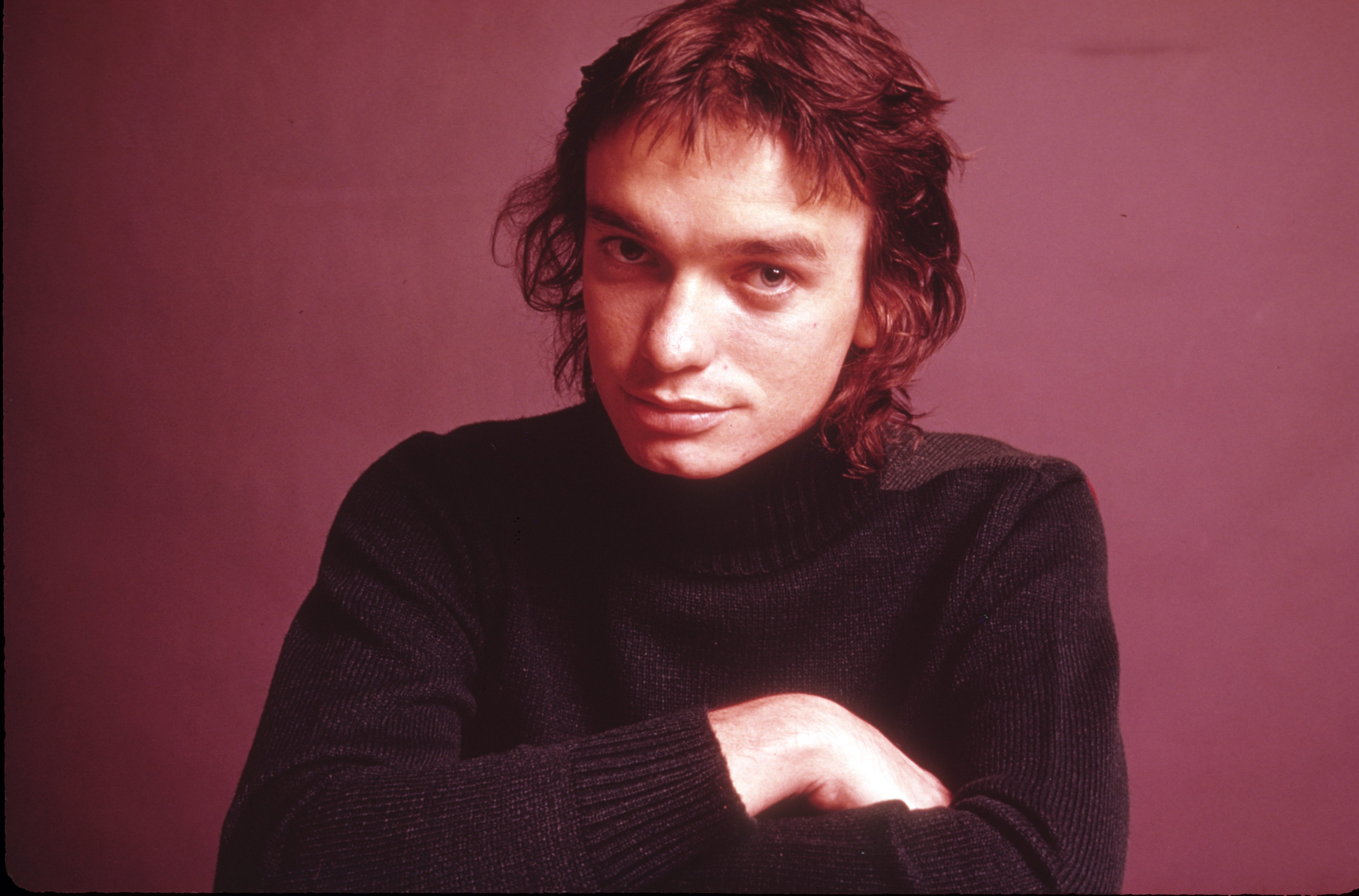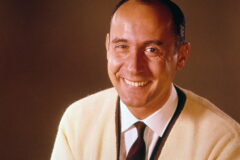This article originally appeared in the November-December 1987 issue of SPIN. In honor of what would’ve been the bassist’s 68th birthday, we’re republishing it here.
Winter 1982: the 55 Grand club, New York City
Jaco has been up for days with no sleep and little food, just flying on blow and hootch. He’s bleary-eyed and disheveled, wearing cutoff shorts and no shoes despite the winter cold. “Hey,” he shouts, “I just came from the record store down the block. And you know what? They’re all out of [Weather Report‘s] Heavy Weather. Not a single one left. That’s a good sign, eh? Shit, last week I bought ten of the fuckers and passed ’em out to everyone I bumped into on the street.”
Inside the club, Jaco holds court, knocking back shots of vodka. “People says, ‘How can Jaco hang out so much?’ It’s because I work out ever day. This year I can bench press my weight, 170 pounds. I couldn’t lift anything when I was 19, man. But now, just look at these forearms, man. That’s the whole thing that got my bass playing together. Man, I’m in great shape. I can still do the 100-yard dash in ten-flat. I can still dunk a basketball. And I do not overdo drugs or booze! See, my thing is to have fun all the time, that’s all.”
For the next hour, Jaco runs the voodoo down. On the Ku Klux Klan in Florida: “You cats in New York don’t know nothin’ about racism. That shit down in Florida is too much, man. I got tired of whipping those goddamn motherfucking crosses off my mother’s front lawn.” On his father’s drinking habits: “He’d sneak shots of vodka in his milk, drink it down, and say, ‘Ah, that’s the only way to drink milk.'”
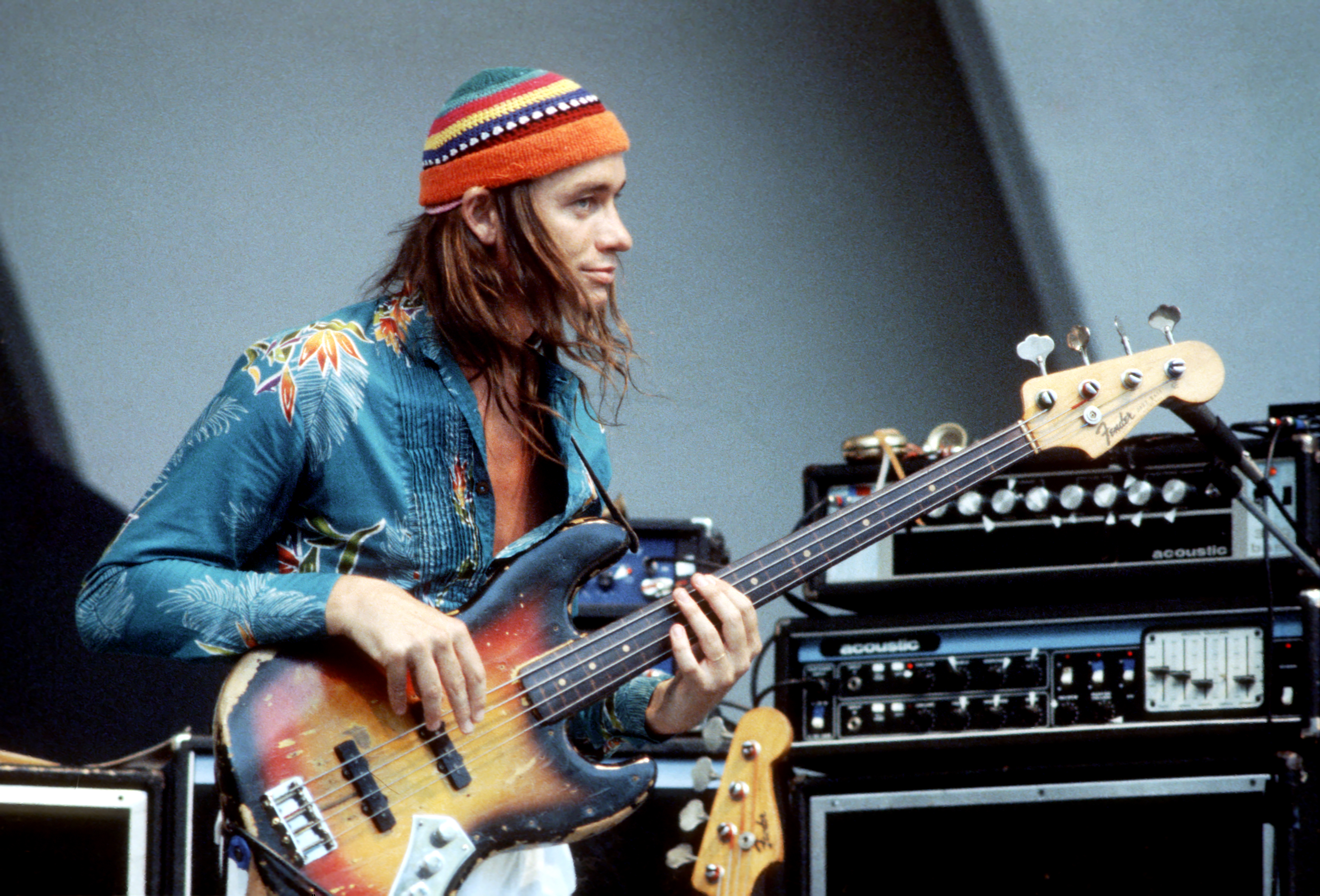
On his “white trash” roots: “Hell, I subbed for the bassist in Ray Charles‘s band when I was 16. I’d play and Ray would say, ‘Who’s that nigger?’ I was the only white kid with enough nerve to walk into an all-black club. It’s like, here’s this skinny white boy playin’ all this shit in a place where the only thing you see in the joint is when people smile. And the chicks are hittin’ on you and you go out to your car after the gig and your tires are slashed, night after night, until they eventually stop fucking with you and let you do you thing.”
“I’m not a musician,” he concludes. “I’m not even Jaco. I’m a redneck-motherfuckin’-nigger-swamp-ass-motherfuckin’-coon-ass-redneck’Peurto-Rican-jive-ass-motherfuckin’-Seminole-Indian.”
This was Jaco at the beginning of a binge that would last for the next four and a half years. Broke, alienated from former friends and from the industry that had once championed him, Jaco roamed the streets of Greenwich Village in a haze, bumming beers off running-buddies and panhandling for spare change. Some had compassion for him, others scorned him, showing only contempt that he had let himself slide so far. Talk was that Jaco wouldn’t last another year.
* * *
Jaco was born on December 1, 1951, in Norristown, Pennsylvania, the son of an itinerate drummer. When Jaco was seven, his family moved to Florida. “I heard a lot living in Florida and was able to explore more stuff than most people,” he says. “Soul music, Cuban music, swamp music, Caribbean music, blues, rock ‘n’ roll, everything.”
Originally a drummer, Jaco learned the bass after breaking his hand in a football game when he was 13. “I was in a band called Las Olas Brass when I was 15, playing drums. The bass player quit, and there was this other guy that wanted to get into the band as the drummer, so I agreed to go to the bass spot. And I more or less picked it up. I can more or less just pick up any instrument and play it. That’s like a gift, I guess, that I was blessed with.”
He stared playing around South Florida in a number of outfits, and eventually landed in Wayne Cochran’s C.C. Riders, playing the chitlin’ circuit and paying dues. He got out when the University of Miami offered him a teaching job.
At age 22, when the University’s big band performed with Weather Report, Jaco caught the attention of keyboard player Joe Zawinul by introducing himself as the world’s greatest bassist. He ultimately joined the group, and for five albums, all of which he coproduced, established himself as the standard by which all other bass players were measured. And while he never hesitated to remind you of this fact, he’d also confide in rare moments that he was “just doing a very bad imitation of Jerry Jemmott.”
“I had been listening to people like Stanley Clarke, who I liked a lot,” recalls bassist Mark Egan, a former student of Jaco’s who later played with the Pat Metheny Group and Elements. “But when I heard Jaco’s thing, it completely turned me around to what you could do with the electric bass. He took chances, and he made you aware of another way of thinking—different lines, different harmonies. There was nobody playing like him at the time, around 1973.”
Egan remembers Jaco as being a very strong personality and a bit of a jock. “He was always into sports. In any game he would just go out and challenge you, trying to be the best at whatever he did. And he was very excessive. He’d stay up and play his bass all night. He was just so intense all the time.”
“Of course, he hadn’t gone over the edge with all the paraphernalia and drugs and alcohol. He was totally straight then. No drugs, no drinking or anything. I remember seeing him at one of his first gigs with Weather Report in 1976. He had just joined the group. He looked almost reserved. H just stood in one place and played great. He didn’t have all the social pressures of having to be the best back then. That came later.
Spring 1985: Third Street Music School Settlement, New York City
Jaco is the featured artist in a Meet the Composer series in Manhattan’s East Village. As the students and their parents file into the recital, Jaco shows up barefoot, smashed on wine. He seats himself at a piano and begins noodling around on some gospel vamp, singing in a godawful rasp that can only be described as vintage Wallace Beery. His motor skills seem badly impaired, his once-impeccable time is terribly flawed.
The confused band tries to follow his lead, but it is impossible. Jaco plays some piano, stands up, does a crazy dance step, sits back down at the piano, and continues bleating his gospel field holler. Someone in the crowd yells out, “Play the bass!” Jaco turns and flashes his little finger. A few parents grab their kids and march out.
Suddenly, Jaco begins shouting across the hall to the drummer, who looks lost. Jaco becomes enraged. He storms across the hall and hovers over the drummer, berating him in front of everyone. Grabbing a pair of drumsticks, he begins thrashing away violently on the crash cymbal. Finally, he grabs the cymbal stand and sends it crashing to the floor, then storms out, spewing a stream of expletives.
July 1985: Washington Square Park, Greenwich Village
It’s a hot summer afternoon. Breakdancers are spinning, young-bloods are doing their daredevil thing on skateboards, and old hippie troubadours are strumming familiar folk tunes, and a plethora of boom boxes provide a steady pulse of reggae and rap behind it all.
Under the park’s arch, Jaco sits with a small cassette player hooked up to a battery-powered amp, listening to a tape of Weather Report’s biggest seller, Heavy Weather. He has a black eye, a bruised cheek, and several cuts on his face. His hair is greasy and his clothes are rumpled and stained. He looks and smells as if he hasn’t washed in days. In front of him there’s a hat laid out to collect small change from passersby.
One approaches him and calls out, “Hey, Jaco. How you doin’, man?” Jaco slowly lifts his head, squints at the figure before him, and in a hoarse voice replies, “Got a quarter?”
December 1985: the Seventh Avenue South club, New York City
Jaco has been holding fourth in the club for the past five days with guitarist Hiram Bullock and drummer Kenwood Dennard. He’s three months out of the hospital, where he was diagnosed as being manic-depressive, and is still on lithium. He’s turning down drinks, passing up blow. He seems calm and relaxed. His attention span has returned after a long absence, and he’s playing like a motherfucker.
A few months later, fresh from a five-week European tour with Gypsy guitarist Bireli Lagrene, Jaco is back in New York, at the Lone Star Cafe, and optimistic. Blue Note president Bruce Lundvall has expressed interest in recording Jaco with Bireli in a power-trio format that he believes could be the Mahavishnu Orchestra or Return to Forever of the ’80s.
He’s excited, but leery about Jaco leading a band. He’s heard all the horror stories, and he’s seen Jaco panhandling in the Village. He knows that it would be a risk, but he also knows that there’s music to be made. The problem is getting it out and onto tape.
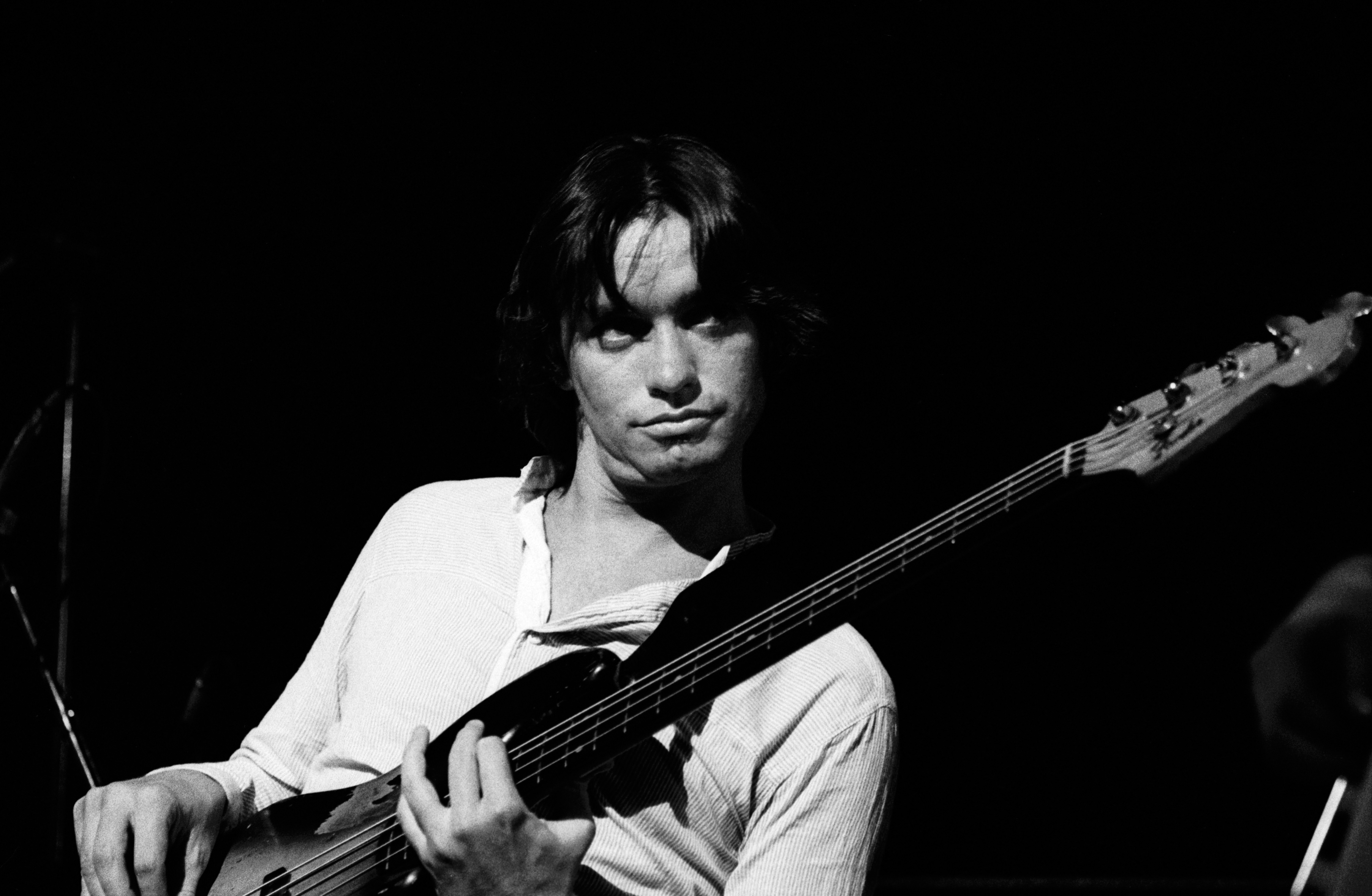
Meanwhile, Jaco cranks out Jimi Hendrix covers and Wilson Pickett covers and Buddy Miles covers on stage with Bullock and Dennard. He’s loosened up considerably from the December gig, playing up the Jaco antics again, and the crowd loves it. And there’s a new woman in his life, the stunning Theresa Angle, for whom Jaco has penned a new ballad. He’s in love, he looks healthy, he’s playing great.
It’s Lundvall’s move.
“I hear he’s trying to come back, but I’ve heard conflicting reports,” says former Weather Report drummer Peter Erskine. “It takes a lot of guts and discipline to come back. And I dunno…Maybe the support network isn’t there for Jaco like it has been for some other guys. It’s just a shape that he doesn’t have the right kind of support or whatever it would take for him to do what he’s really gotta do to get his shit together.”
He sighs. There’s a long pause. “Last year, when Jaco was staggering around the Village all fucked up and panhandling, some people thought it was funny and some didn’t care. But nobody was really helping him. And I thought, ‘You know, this could be an amazing tragedy.’ You know, where we all look at ourselves after something like that and say, ‘Well, did we really try?'”
“It’s hard, because it’s so uncomfortable to have to stare that shit in the face. So in a lot of ways I feel like I haven’t done enough to help a dear old friend. You know, whenever Jaco would call on me, I would help him to do whatever. But we’re in different circles now, and I feel sad about that. I guess it’s really up to him now.”
Summer 1986: West Fourth Street basketball court, Greenwich Village
The action is hot and heavy on the court, as sweating bodies collide in midair and dive for loose balls. Under the basket, in the middle of all the bumping and shoving and grunting, is one sole paleface. He’s a step slower than the others, shorter than most, and his 33-year-old legs won’t let him leap like the graceful young gazelles on the court.
Still, he finds a place on a team because he plays with a kind of wild intensity that wins him the respect of the tallest and the quickest. It’s the same way he plays the bass—all out.
It’s been a productive morning for Jaco. He’s helped his pickup team win four consecutive games before it is retired by a fresh group of anxious young jocks who’ve been waiting on the sidelines. Twice on fast breaks he’s pulled up and scored from the far corner, which he proudly claims as “my shot.” He’s made a few key steals, grabbed a few rebounds, and his ugly bank shot has been dropping with uncanny consistency. He seems happy.
“Hell, last year at this time all I’d do was sit on the sidelines and get drunk or high,” he laughs between sips of Saratoga spring water, as sweat drips steadily from his brow. “But now I’m back in the ballgame. I just sat out all of last year—basketball and music. I was tired, that’s all. Tired and frustrated. I was retired. But lemme tell you…the boy is back!”
The game continues into the twilight, as agile young athletes glide on the court like cats in the night, hitting 20-foot jump shots with magical accuracy. Jaco drops out sometime in the middle, but stays around, just hanging out. This court is his home, its players part of his surrogate family.
Tonight, a couple of days before another gig at the Lone Star Cafe, Jaco is on a roll. He’s packing a wad of cash (attained from God knows where), and he’s intent on burning through the whole bankroll before the night ends. A very soft touch whenever he’s holding, Jaco tosses ten-spots to everyone. One stunned player takes a bill, kisses it, thanks Jaco, and takes off into the night.
“I owe these motherfuckers my life,” says Jaco. “When everyone else was writing me off and trying to lock me away, these guys took care of me. They saved my life last year. They’re family. I couldn’t pay them back enough.”
July 1986, Bellevue Hospital, New York City
Wearing a super-wide-brimmed Florida straw hat, hospital robe, and white slippers, Jaco holds court in the Bellevue psychiatric ward. Three weeks previously, his brother Gregory had grabbed him off the streets and checked him in. Jaco laughs about it. “Yeah, everyone here, except for me and about three or four other people, is basically nuts. Hell, I been saving half the people in here, talkin’ to ’em, makin’ ’em feel like people. Not like these nurses here.”
“Jaco’s really popular around here,” confirms his roommate, a young drummer who had plotted to blow up the subway before turning himself in. “He’s mellowed everybody out.”
Jaco holds up a portable Yamaha electric keyboard, a gift from saxophonist and friend Michael Brecker. “You know,” he continues, “this is just a vacation for me. I’m gettin’ more done in here than I did outside. I just came in here to prove to them that I was completely straight. They found no traces of alcohol or drugs in my blood when they brought me in here. And they did all these tests on me. Had me hooked up to something that looked like the board at the Power Station [recording studio]. Electrodes and shit all over my face. And they didn’t find nothin’. So I’m on the road to gettin’ outta here.”
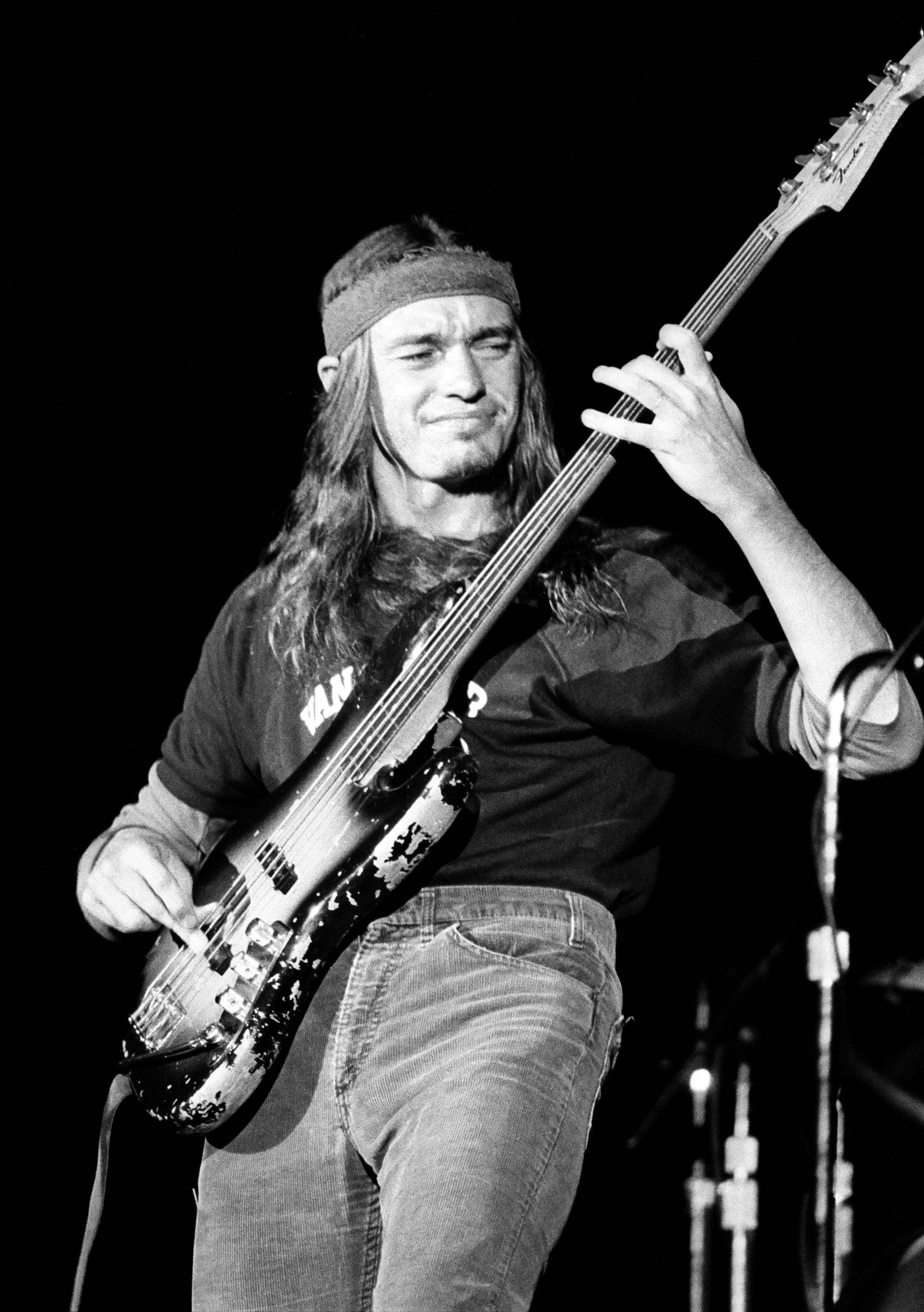
Later in the week, Jaco has Warner Bros. Records on the phone, collect. A secretary listens as he runs down his rap.
“I’m ready to burn. I’m good to go. I’m straight as an arrow, strong as a bull, and rarin’ to get back to work. Yeah, I’ve taken my five-year-sabbatical, I’ve done my psychiatric treatments, just to chill out. And now I’m ready to make some records again. I’m playing beter’n ever. I’ve got tapes…me with a trio live and me with Bireli Lagrene, the Gypsy guitarist. This stuff is killin’. It’s frightening. I mean, it’s happening stuff. I want Ted [Templeman, vice president of A&R] to give it a listen and maybe produce something for me.”
He leaves a number for Templeman to call back. It’s the number of the pay phone down the hall on the 19th floor, shared by the 30 or so patients in the ward. Jaco’s been conducting business on this phone all week, leaving similar messages for Dr. George Butler at Columbia, Quincy Jones at Qwest, Bruce Ludvall at Blue Note, Ricky Shultz at Zebra, John Snyder at Atlantic.
“Yeah, I’ll be outta here in about a week or so,” he maintains. “Then I think I’ll go to the coast. Haven’t been there since Weather Report. I just about 86ed myself out of New York. Yeah, L.A. might be good. Cool out there with Terry, maybe have some more kids. Who knows?”
Epilogue
Jaco checked out of the Bellevue Casino Hotel, as he called it, after a seven-week stay and left New York for San Francisco. In November 1986, he played one show with Bullock and the Grateful Dead‘s Bob Weir and discussed doing some gigs with Carlos Santana. It never took, however, and by Christmas, he drifted down to Fort Lauderdale.
At first, his old home town proved a stabilizing force. Jaco sat in at a couple of January gigs at the Musicians Exchange, the hub of the thriving local music scene. By mid-January, however, he had begun a series of arrests that would number 13 over the next 9 months; charges ranged from disorderly conduct to auto theft. He got himself banned from the Musicians Exchange; he began sleeping on the beach, in alleys, and by the railroad tracks, even though he had family and friends in town.
On September 11, Jaco tried to jump onstage with Santana at the Sunrise Musical Theatre in Sunrise, Florida. The stage hands grabbed him and pulled him down; he stormed out of the theatre, angry and humiliated. He continued to Wilton Manors, a small town just north of Fort Lauderdale.
At four AM, he arrived at the Midnight Bottle Club, a members-only spot he had visited a month earlier. Drunk and disheveled, he was denied admission. According to witnesses, Jaco tried to force his way in. When the police found him in an alley behind the club, twenty minutes later, his skull was fractured, as were both of his cheekbones; he lay in a coma. Nine days later, Jaco Pastorius, still comatose, died in Broward County Medical Center.

